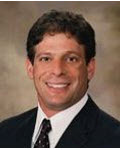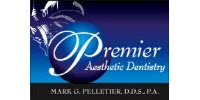Call (803) 781-7901
Relieving Dental Anxiety With Sedation Dentistry
Patient comfort and care is a top priority for a sedation dentist. They recognize that dental anxiety or discomfort can be associated with some dentistry procedures. Fortunately, a variety of dental procedures using dental anesthetics are available to relieve both anxiety and discomfort. Talk with your dentist to find out which is right for you.
Dental Anxiety Relief
Local Anesthetic:
This is the most frequently used type of dental anesthetic for sedation dentistry procedures. Although often referred to as "Novocain," this once popular painkilling drug has actually been replaced by more effective anesthetics such as Lidocaine for a commfortable dental care treatment. It also works very well for temporary relief of a tooth ache.
However, the name has become so much a part of the American vocabulary, it's now used in generic terms. Prior to injecting the local anesthetic, the dentist often swabs a topical anesthetic over the injection site to prevent the patient from even feeling the needle.
Conscious Sedation Dentistry:
Patients seeking comfortable dentistry can consult with their dentists to choose anti-anxiety agents either administered by mouth, inhalation or injection. Nitrous oxide, often referred to as laughing gas, helps to ease patient anxiety. The gas is inhaled by patients, inducing relaxation, so they can approach dental procedures with less stress.
Deep Sedation:
This may be required for complex procedures or for dental patients with special needs. With the administration of general anesthesia, the patient is unconscious; with deep sedation dentistry or sleep dentistry, dental patients are deeply relaxed and not fully aware of their surroundings during their dental treatment.
Consult With Your Dentist
Prior to treatment, your dentist will need to know a few things regarding your health history such as:
- allergies
- your current health condition
- any medications you may be taking.
Some medicines may interfere with the efficiency of an anesthetic requiring an adjustment in your medication schedule. Your health history is very important information for the dentist. During the consultation, you can ask questions about any dental procedures that may be of concern during your dental procedure.
A Concern for Safety
The drugs used as dental anesthetics are approved by the Food and Drug Administration and are safe. Anesthetic providers are professionals with a commitment to patient safety and comfort.
A dental anesthetic can be administered by a general dentist, a dental anesthesiologist or an M.D. Certification is required and is regulated on a state-by-state basis. Discuss sedation with your dentist at your next visit.
By Brian J. Gray, DDS, MAGD, FICO
Call for an appointment:
(803) 781-7901
Make an Appointment
Don't Forget to Floss!
Clean between teeth daily with floss or an interdental cleaner. Decay-causing bacteria can hid between teeth where toothbrush bristles can't reach. Flossing helps remove plaque and food particles from between teeth and under the gum line.
ONE SMALL PILL YOU WILL AWAKE WITH THE SMILE OF YOUR DREAMS CALL TODAY






